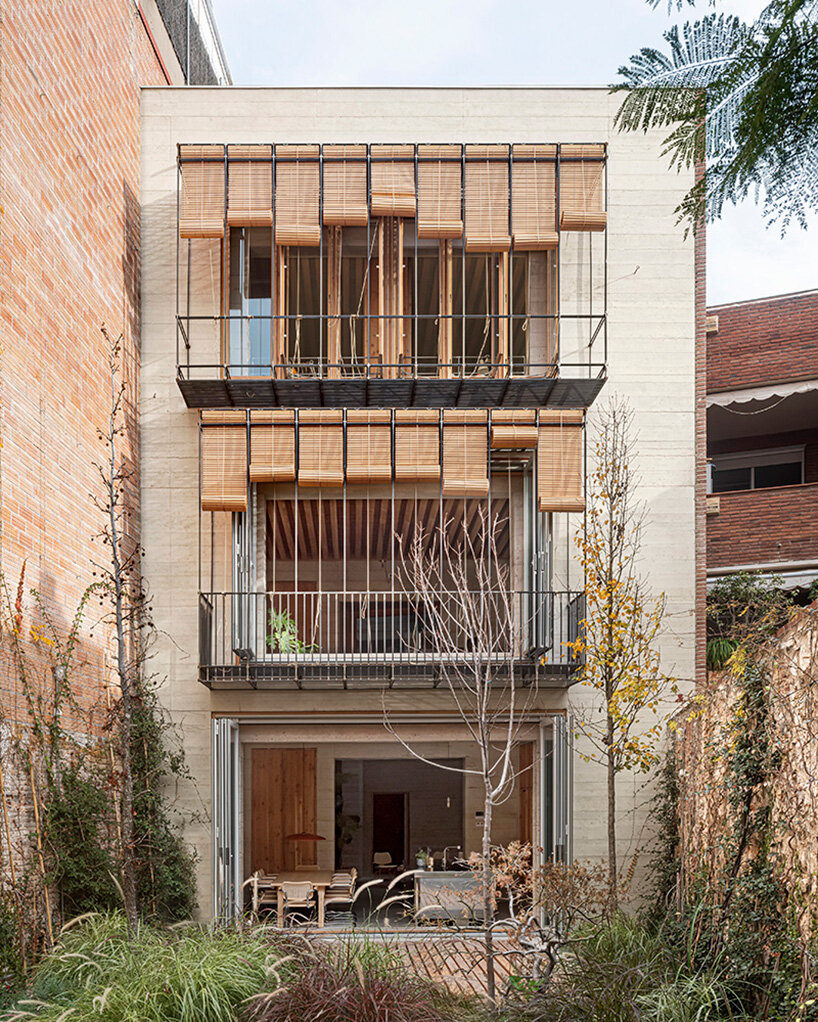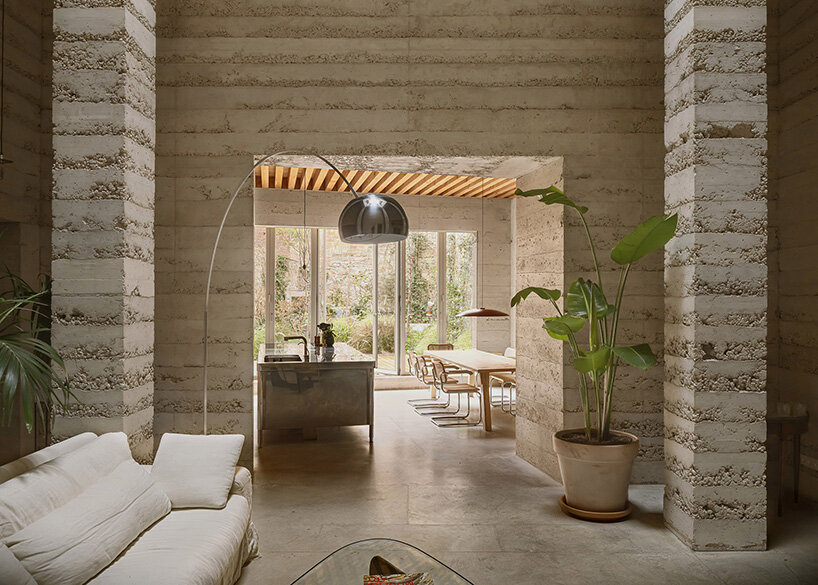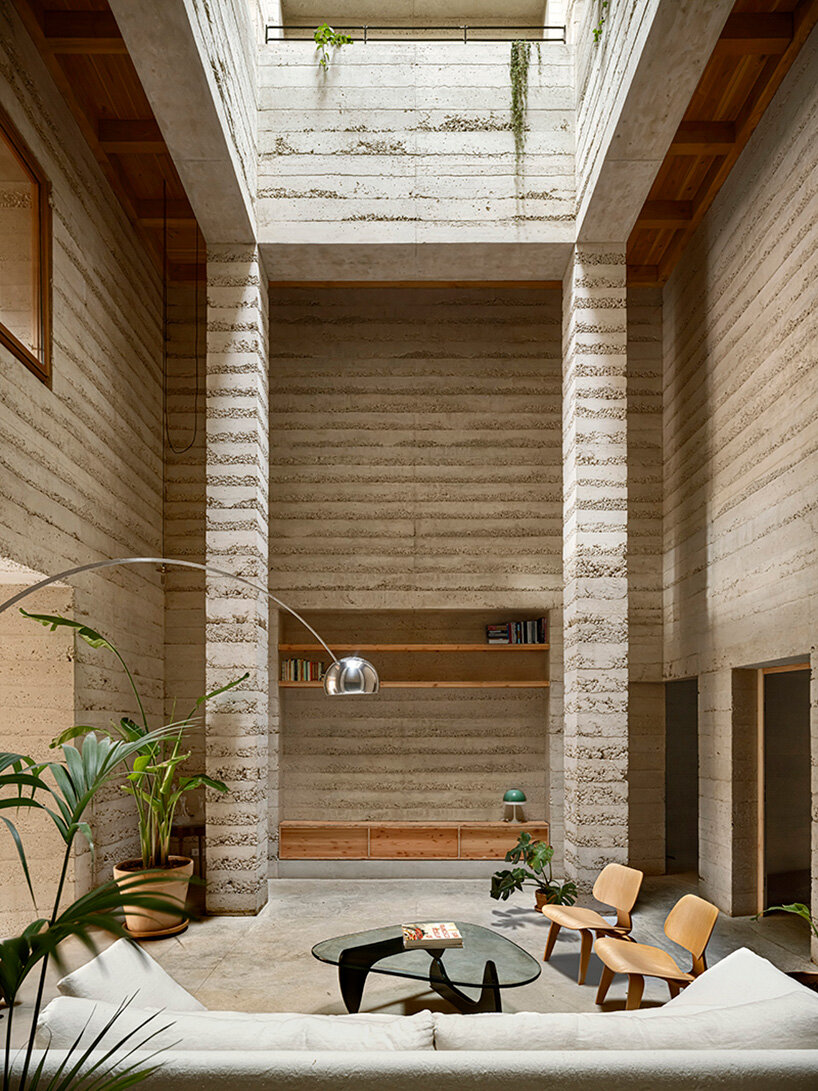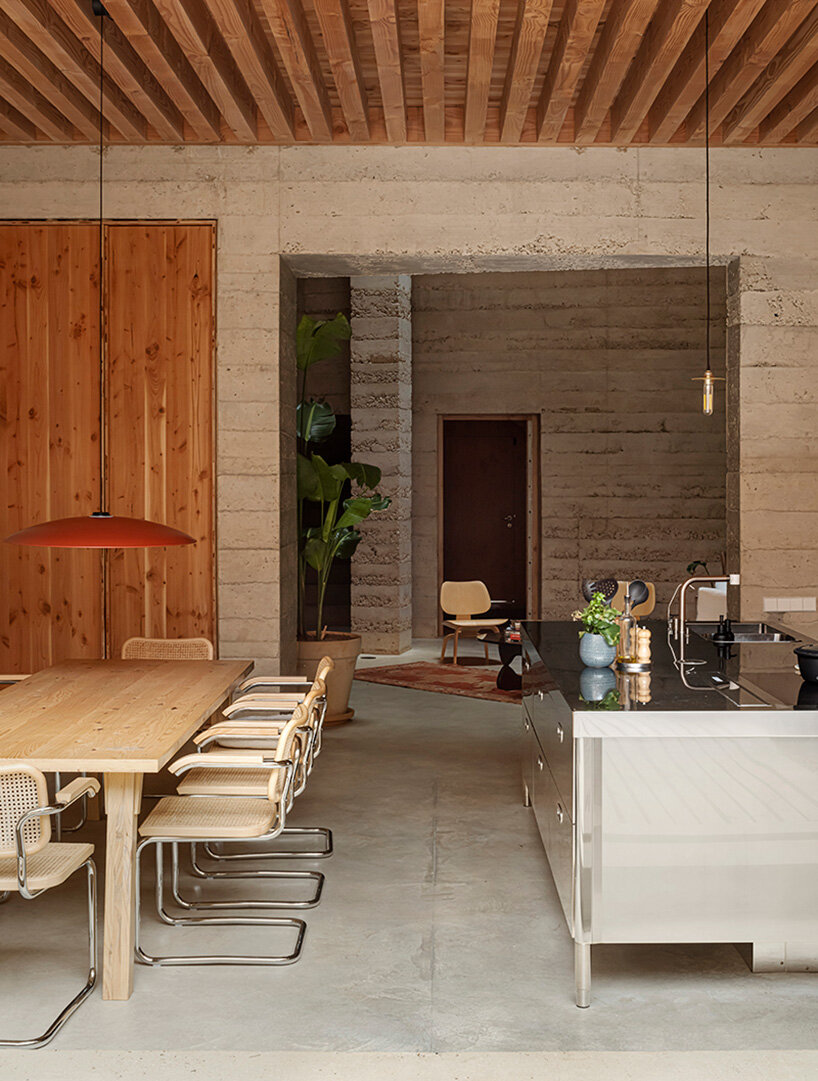a breezy barcelona home by harquitectes
Barcelona‘s HARQUITECTES studio has unveiled Casa 1736, a new residence that reimagines the urban home for a contemporary family. Located on a densely packed plot, the project introduces a light-filled, airy retreat in the heart of the Spanish city. Designed for a family of six, the dwelling fits a substantial program within a tight footprint. Bound by regulations that allowed for a ground floor and two upper stories, the architects faced the challenge of preventing the deep floor plan from becoming a dark, poorly ventilated space. The solution lies in the introduction of a central atrium — a modern interpretation of the traditional interior courtyard. This core becomes the heart of the home, prioritizing natural light, ventilation, and spaciousness. The architects describe it as ‘a space in between’ that integrates the benefits of the outdoors into the home.
images © Adrià Goula
passive design strategies for a breezy ‘casa 1736’
A key aspect of HARQUITECTES’ Casa 1736 is the verticality of its central courtyard. A large opening in the roof allows natural light to cascade down to the lower levels, while encouraging air circulation and directing hot air upwards. This vertical emphasis, along with the strategic use of light, transforms the central space into a vibrant, open area that evokes a feeling of the outdoors. The extensive program is organized around this central interior courtyard. To create a sense of order, the architects have categorized the program hierarchically. Each floor features four prominent, larger, and higher-ceilinged spaces, complemented by smaller, lower-ceilinged secondary areas. This hierarchy addresses the irregular plot, allowing for an orthogonal organization of the main spaces. The architects use the concept of ‘excavated architecture,’ where the variations in space are absorbed by the thickness of the walls.

casa 1736 is a new residence designed by Barcelona’s HARQUITECTES studio
low-cement concrete for a textural finish
Designing Casa 1736, HARQUITECTES prioritizes thermal stability and sustainability. The main structural walls are constructed from a special low-cement concrete mix — a ‘poor’ concrete which offers high thermal mass to keep the interior cool in summer and warm in winter. Meanwhile, the porosity of the material helps regulate temperature, humidity, and acoustics within the house. The main living spaces open up with high ceilings finished in wood, creating a distinct contrast with the complementary spaces carved into the thick walls, which maintain a mineral aesthetic.

the project responds to the challenge of creating a light-filled home on a dense urban plot
the atrium and the cloister
Drawing inspiration from traditional architectural forms, Casa 1736 incorporates two archetypes — the atrium and the cloister. The ground and first floors feature a double-height atrium, its central courtyard framed by four pillars. This space becomes the focal point for the living areas. On the second floor, a cloister takes center stage. Similar to the atrium, it offers height and natural light, but with a focus on circulation and shared spaces surrounding the central courtyard. This space acts as an extension of the surrounding rooms, fostering a sense of connection and community.

a central space, acting as a modern interpretation of a patio, brings light and ventilation deep into the house 
the program is organized around this central space, separating larger and smaller rooms

